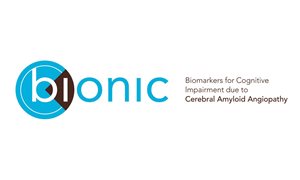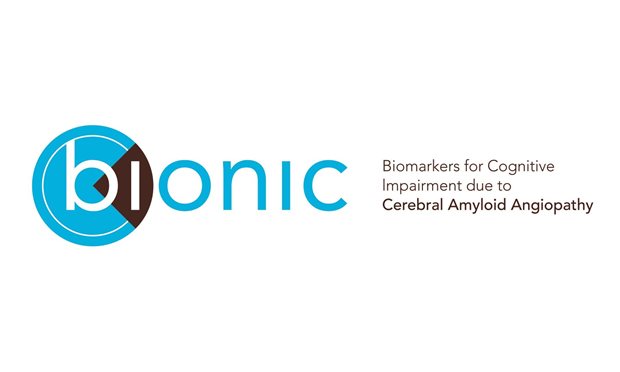

Background of the BIONIC project
Diagnosis of cerebral amyloid angiopathy (CAA) currently relies on the 'Boston criteria', which are based on MRI markers. However, these criteria are based on late and indirect hemorrhagic markers of CAA and do not provide definitive proof of the disease; this hampers early diagnosis. read moreBackground of the BIONIC project
The need for new biomarkers of cerebral amyloid angiopathy
Diagnosis of cerebral amyloid angiopathy (CAA) CAA currently relies on the 'Boston criteria', which are based on MRI markers. However, these criteria are based on late and indirect hemorrhagic markers of CAA and do not provide definitive proof of the disease; this hampers early diagnosis. Thus, novel biomarkers are needed. Cerebrospinal fluid (CSF) and blood biomarkers have proven to be a good option.The role of CAA biomarkers in detecting Amyloid Related Imaging Abnormalities
Treatment of Alzheimer disease(AD) patients with anti-Amyloid β immunotherapy is complicated by the occurrence of serious side effects, “Amyloid Related Imaging Abnormalities “(ARIA), causing seizures, neurological deficits and behavioral changes. It is thought that presence of severe CAA is a risk factor for the occurrence of ARIA. So, CAA biomarkers may also be instrumental in identifying patients at high risk for ARIA.BIONIC: BIOmarkers for cogNitive Impairment due to Cerebral amyloid angiopathy.
Aims
- To develop robust assays for quantification of novel biomarkers in CSF or blood to identify CAA.
- To determine the contribution of CAA to cognitive decline in dementia and intracerebral hematoma patients.
- To develop an empirically informed advice on how new diagnostic tools should be implemented in regular care.
- To determine if biomarkers of CAA can predict occurrence of ARIA as a consequence of anti-amyloid β immunotherapy in AD patients.
Methods
Different protein measurement technologies including ELISA, mass spectrometry and SIMOA technology will be used to develop sensitive assays for quantification of previously identified candidate CAA biomarkers, e.g. amyloid β peptides, proteolytic enzymes, heat shock and inflammatory proteins. read moreDuration of the project
The duration of the project is 4 years, start in 2018.Partners
- Leiden University Medical Center
- ADx NeuroSciences
